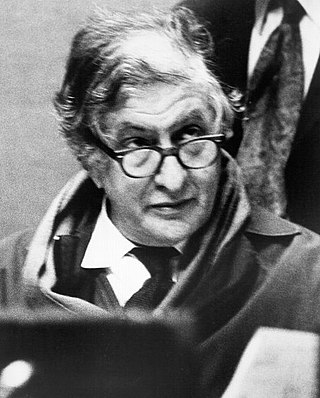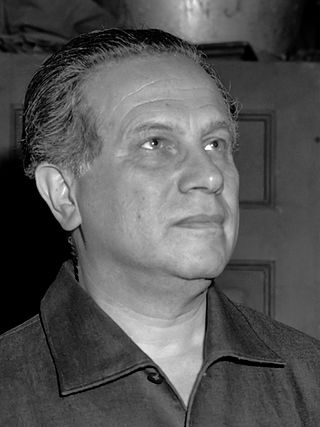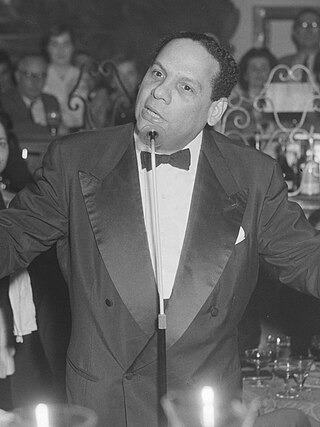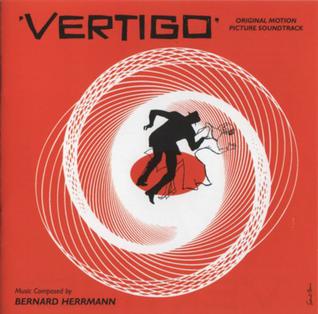Related Research Articles

Bernard Herrmann was an American composer and conductor best known for his work in composing for films. As a conductor, he championed the music of lesser-known composers. He is widely regarded as one of the greatest film composers. Alex Ross writes that "Over four decades, he revolutionized movie scoring by abandoning the illustrative musical techniques that dominated Hollywood in the 1930s and imposing his own peculiar harmonic and rhythmic vocabulary."

Antal Doráti was a Hungarian-born conductor and composer who became a naturalized American citizen in 1943.
Edward II are an English band which play a fusion of world music, English folk and reggae. Active from 1980, the band broke up after losing several key members in 1999, relaunching as "e2K" in 2000. In 2003, the band dissolved once more, but have since reformed for a one-year reunion tour in 2009 under the "Edward II" name, celebrating the tenth anniversary of the breakup of the original band. They reformed in 2015 specifically to produce the Manchester's Improving Daily project, which includes the release of new recorded material and a book. The project is designed to celebrate a collection of tunes written in Manchester during the Industrial Revolution, published as Broadsides and currently held in Manchester Central Library. In 2021 Edward II released the album "Dancing Tunes", bringing their own unique style to a collection of traditional and historic Jamaican calypso and mento songs that pre-date reggae as we know it today.

Cara Elizabeth Dillon is a Northern Irish folk singer. In 1995, she joined the folk supergroup Equation and signed a record deal with Warners Music Group. After leaving the group, she collaborated with Sam Lakeman under the name Polar Star. In 2001, she released her first solo album, Cara Dillon, which featured traditional songs and two original Dillon/Lakeman compositions. The album was an unexpected hit in the folk world, with Dillon receiving four nominations at the 2002 BBC Radio 2 Folk Awards.

Edmundo Ros OBE, FRAM, born Edmund William Ross, was a Trinidadian-Venezuelan musician, vocalist, arranger and bandleader who made his career in Britain. He directed a highly popular Latin American orchestra, had an extensive recording career and owned one of London's leading nightclubs.

Annunzio Paolo Mantovani was an Italian British conductor, composer and light orchestra-styled entertainer with a cascading strings musical signature.

Enoch Henry Light was an American classically trained violinist, danceband leader, and recording engineer. As the leader of various dance bands that recorded as early as March 1927 and continuing through at least 1940, Light and his band primarily worked in various hotels in New York. For a time in 1928 he also led a band in Paris. In the 1930s Light also studied conducting with the French conductor Maurice Frigara in Paris.
Marmaduke Duke are a Scottish conceptual rock duo from Ayrshire, Scotland, comprising Simon Neil of Biffy Clyro and JP Reid of Sucioperro. Within the band, the pair perform under the pseudonyms The Atmosphere and The Dragon respectively. According to Neil, the band, and its albums, are "based on a trilogy of unreleased manuscripts that a friend of ours brought to this country a few years ago. We're really just working to soundtrack those stories."

The BBC Big Band, originally known as the BBC Radio Big Band is a British big band, previously run under the auspices of the British Broadcasting Corporation (BBC). The band broadcasts exclusively on BBC Radio, particularly on BBC Radio 2's long-running series Big Band Special. It consists of professional musicians and is directed by a number of conductors. These include arranger and composer Barry Forgie, who has been the band's Musical Director since 1977, American jazz trombonist Jiggs Whigham, and guest musical directors.

The Pasadena Roof Orchestra (PRO) is a contemporary band from England that specialises in the jazz and swing genres of music of the 1920s and 1930s, although their full repertoire is considerably wider. The orchestra has existed since 1969, although the line-up has frequently changed. It has achieved success outside the United Kingdom, most notably in Germany.

Neil Yates is a British jazz and folk musician.

The music score for Alfred Hitchcock's 1958 film Vertigo was composed by Bernard Herrmann between 3 January and 19 February 1958. The recordings were made in London and Vienna, with orchestra conducted by Muir Mathieson. A musicians' strike had prevented the score from being recorded in Los Angeles with Herrmann conducting.
Syd Lawrence was a British bandleader, who became famous in the UK for his orchestra's Big Band sound, which drew on the 1940s style of music of Glenn Miller and Count Basie amongst others.
Alyn Ainsworth was a British musician, singer and conductor of light entertainment music.
The BBC Radio Orchestra was a broadcasting orchestra based in London, maintained by the British Broadcasting Corporation from 1964 until 1991.

Maurice Winnick was an English musician and dance band leader of the British dance band era.
The BBC Scottish Radio Orchestra (SRO) was a light music broadcasting orchestra based in Glasgow, Scotland, maintained by the British Broadcasting Corporation from 1940 until disbandment in 1981.
Blaine Leslie Reininger is an American post-punk, new-wave and alternative pop singer, songwriter, musician, multi-instrumentalist, writer and performer. He is known for being a member of the group Tuxedomoon since 1977 after co-founding it with Steven Brown and, latterly, for a notable music and theatre career, both as a soloist and contributor to other artists' recordings, including the Durutti Column, Snakefinger, Anna Domino, Savage Republic, Paul Haig, William Lee Self's Montanablue project, Devine & Statton and Brown himself.

Cavaliers: An Anthology 1973–1974 is a remastered four-disc box-set anthology by Cockney Rebel, released in 2012. The set chronicles the recording career of the original line-up of Cockney Rebel, between 1973 and 1974. It includes both of the band's albums The Human Menagerie (1973) and The Psychomodo (1974), as well as all the singles and non-album B-Sides. It also features early alternative versions and mixes of tracks from both albums, as well as live sessions for the BBC, including a John Peel session and on the Old Grey Whistle Test.
Gregory Bowen is a Welsh trumpet player. His primary work was done in London before relocating to Berlin, Germany in 1976. Since 1961, Bowen has performed and recorded with jazz, pop artists and entertainers from Europe and North America on records, soundtracks and T.V. broadcasts. Most notable is his lead trumpet work on the James Bond film soundtracks Goldfinger, Thunderball and You Only Live Twice.
References
Citations
- 1 2 Garner, Stephen, "Northern Dance Orchestra", Big Bands Database, archived from the original on 31 July 2010, retrieved 6 September 2010
- ↑ Moss (1994), pp. 7–9
- ↑ "Neil Richardson biography", Radio Cafe, retrieved 9 October 2010
- ↑ "Diamonds: The Best of the BBC Northern Dance Orchestra", northerndanceorchestra.org.uk, retrieved 20 July 2012
Bibliography
- Moss, Phil (1994), Manchester's Music Makers, Neil Richardson, ISBN 978-1-85216-086-9